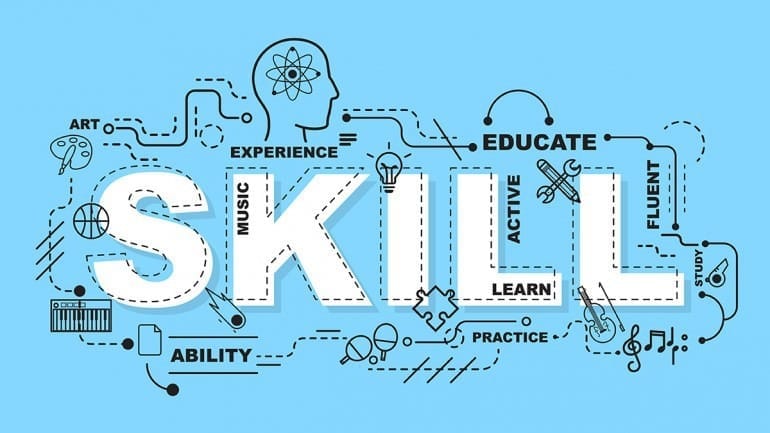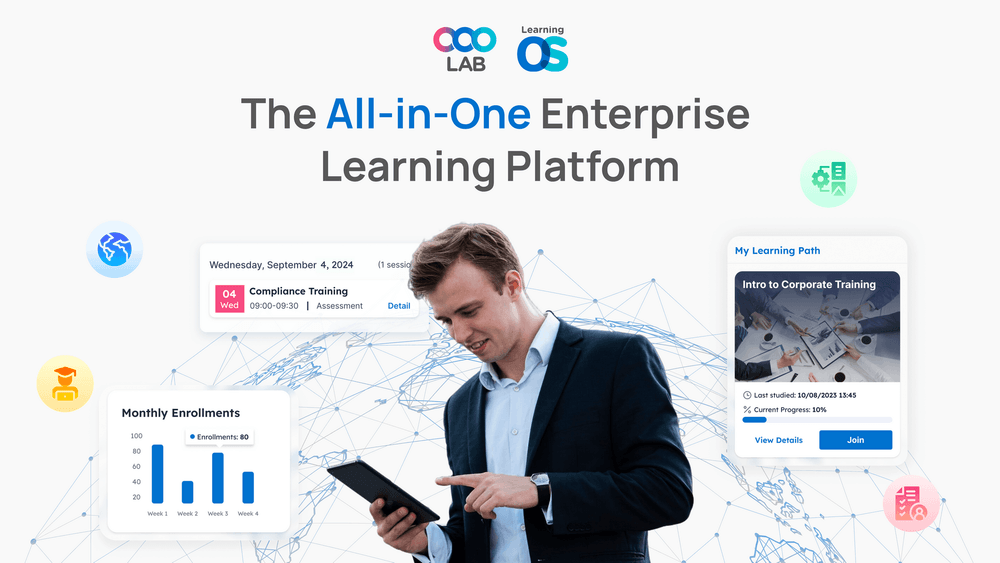

In a rapidly evolving business landscape, maintaining a competitive edge requires more than just technological innovation. It demands a workforce capable of adapting to change, mastering new skills, and delivering results under diverse conditions. This is where improving the skill quotient (SQ) of your team becomes critical. Skill quotient represents the collective ability of a team to learn, adapt, and apply skills effectively in real-world scenarios.

Skill quotient (SQ) measures the skill adaptability and competency levels of a team or individual. Unlike traditional assessments like IQ (Intelligence Quotient) or EQ (Emotional Quotient), SQ focuses on one’s ability to develop and apply both technical and soft skills.
In today’s fast-changing work environments, organizations with a high SQ workforce are better positioned to innovate, respond to disruptions, and seize new opportunities. Investing in SQ isn’t just about upskilling employees; it’s about fostering a mindset of continuous learning and resilience.
>>> Read more: Skill Quotient Training Tool
>>> Read more: Why Is Skill Quotient Important for Employees?
>>> Read more: How To Measure Skill Quotient In Employees?
>>> Read more: Mastering Skill Quotient Measurement: Key Metrics and Strategies for Accurate Assessment
>>> Read more: Social Quotient Vs Skill Quotient: A Comprehensive Analysis
>>> Read more: Skill Quotient Assessment Tools: Unlocking Employee Potential
Artificial Intelligence has become a game-changer in skill development. AI-powered tools offer personalized learning experiences by assessing individual needs, providing real-time feedback, and adjusting training materials based on progress.
For example, research by McKinsey & Company shows that companies adopting AI for workplace training experience up to a 20% increase in productivity compared to those using traditional methods. Your company’s AI solution can harness similar capabilities to deliver dynamic, adaptive learning paths tailored to individual goals.
To improve SQ, organizations must instill a culture that values continuous skill development. Encouraging employees to participate in regular workshops, take on challenging projects, and seek certifications not only builds their skill set but also keeps them engaged and motivated.
A report by Mordor Intelligence reveals that 94% of employees would stay longer at a company if it invested in their professional development. Leadership plays a vital role in fostering this culture by prioritizing their development and promoting the same mindset within their teams.
Gamification enhances engagement and knowledge retention by making training more interactive and enjoyable. By incorporating elements like challenges, rewards, and leaderboards, companies can encourage healthy competition among team members.
Gamified learning is especially effective when combined with AI analytics, as it enables organizations to track performance and identify areas for improvement while maintaining motivation.
While technical expertise is crucial, soft skills such as communication, adaptability, and critical thinking are equally important for improving SQ. Training programs should be designed to develop a balanced skill set, ensuring that employees can collaborate effectively and adapt to changing circumstances.
Scenario-based training is an excellent method for teaching soft skills. AI can simulate real-world interactions, allowing employees to practice decision-making and problem-solving in a controlled environment.
Microlearning focuses on delivering short, focused training modules that employees can easily digest and apply. This approach is particularly effective for busy professionals, as it allows them to learn at their own pace without disrupting their workflow.
Mobile-friendly platforms that support microlearning ensure accessibility, enabling employees to engage with training materials anytime, anywhere.
Regularly assessing skills is essential for tracking progress and identifying gaps. AI-powered analytics tools can provide detailed insights into employee performance, helping organizations tailor their training programs to address specific needs.
By monitoring trends and predicting future skill requirements, businesses can stay ahead of industry demands and ensure their workforce remains competitive.
Book Free Demo with us. Bring your Training and Learning to a new height with LearningOS.

Technology, particularly AI, plays an integral role in enhancing SQ. Adaptive learning platforms powered by AI can personalize content delivery, making training more relevant and effective for individual employees. Additionally, virtual and augmented reality (VR/AR) technologies create immersive training experiences that replicate real-world challenges.
For example, Enterprise LMS platforms integrated with AI allow businesses to centralize their training efforts, automate administrative tasks, and provide employees with a seamless learning experience. This not only saves time and resources but also enhances the overall quality of training.
Enhanced Productivity: Teams with high SQ can adapt quickly to changes, optimize processes, and deliver better results.
- Increased Employee Retention: Investing in skill development demonstrates a commitment to employee growth, boosting morale and reducing turnover rates.
- Cost Efficiency: AI-powered training solutions reduce the need for repetitive manual tasks, enabling organizations to scale their training efforts cost-effectively.
- Competitive Advantage: A skilled workforce can drive innovation, improve customer satisfaction, and position the organization as an industry leader.
Organizations across industries are using AI-driven tools to transform their approach to training and skill development. For example, a company integrating AI into its sales training program reported a significant increase in skill retention and faster onboarding times.
Similarly, businesses leveraging Enterprise LMS platforms with AI capabilities have noted higher engagement levels and more efficient training processes. These success stories underscore the transformative potential of combining technology with strategic training initiatives.
Improving team skill quotient is a strategic imperative for organizations aiming to thrive in today’s fast-paced business environment. By embracing advanced technologies like AI, fostering a culture of continuous learning, and prioritizing both hard and soft skills, companies can equip their teams with the tools they need to succeed.
AI-driven solutions, such as those developed by your company, offer a powerful way to enhance training programs and drive measurable improvements in SQ. Start investing in your team’s growth today to unlock their full potential and ensure long-term success.
At OOOLAB (pronounced 'uːlæb'), our mission is to make complex learning operations simple. We aim to positively impact the lives of over 1,000,000 learners and educators by the end of 2026.
OOOLAB's LearningOS provides educational institutions and corporate enterprises with an all-in-one solution to create and deliver engaging learning experiences.
We meet organizations' needs or support your growth. We provide undivided attention. We provide:
1. Dedicated success manager: We offer direct communication with a real human who'll discuss your enterprises unique learning operations and goals.
2. Personalized setup: Our team will help you transition to LearningOS on your schedule, one step at a time.
3. Around the clock support: Get help from us any time, and in any time zone.
We have recently launched a new AI training tool, Skill Quotient OS, designed to elevate hybrid training to new heights. It offers role-play exercises with scenarios and assessments.This tool can apply in sales training, corporate development and customer support training in any industry.
Reach out to us at: LinkedIn, Facebook , Instagram, Tiktok, X
1. What are the main benefits of LearningOS
Our platform is easy to use and automates all aspects of your learning operations. It efficiently manages complex tasks, allowing you to concentrate on delivering exceptional learning experiences.
2. What main features does LearningOS offer?
Our all-in-one software solution combines a Content Management System, a Learning Management System, content authoring tools, and a mobile friendly Learner Portal.
3. Can your platform be used for corporate enterprises?
Absolutely! LearningOS is an Enterprise LMS is a great fit for corporate learning. In fact, we have clients with up to 700,000 employees using LearningOS! Upskill your workforce by creating and assigning interactive eLearning content while effortlessly tracking employee progress.
4. Who currently uses your platform?
Our platform is currently used by over 120,000+ learners, parents, and employees across 21 countries worldwide!
5. What types of content options are available on your platform?
We offer ready-to-go curriculums for various educational purposes or our expert design team can build a custom course for you. We can also upload your existing learning materials and enhance them digitally.
6. What is unique about LearningOS?
Our platform, designed by educators for educators, provides you with all the tools you need to scale. Build and promote your own hybrid and blended learning courses and save money on licensing fees by owning your own proprietary content.
7. How can I get started?
Schedule a meeting with our experts and we’ll talk about how our platform can address your unique challenges and help to grow your business.